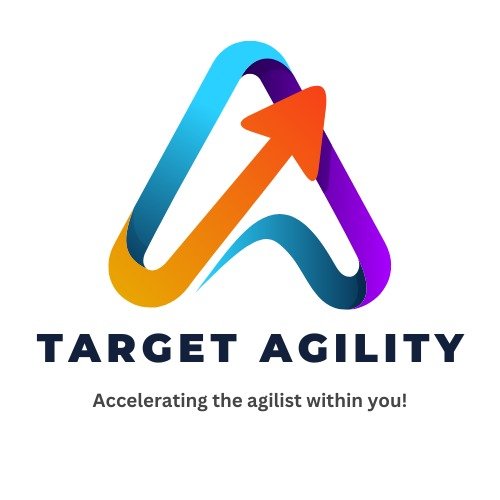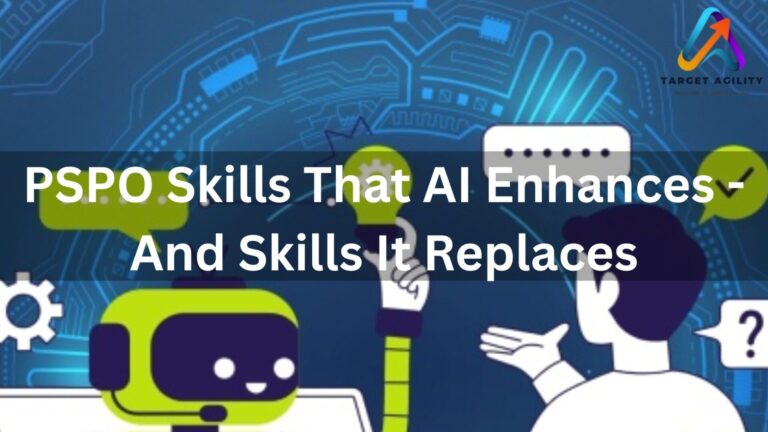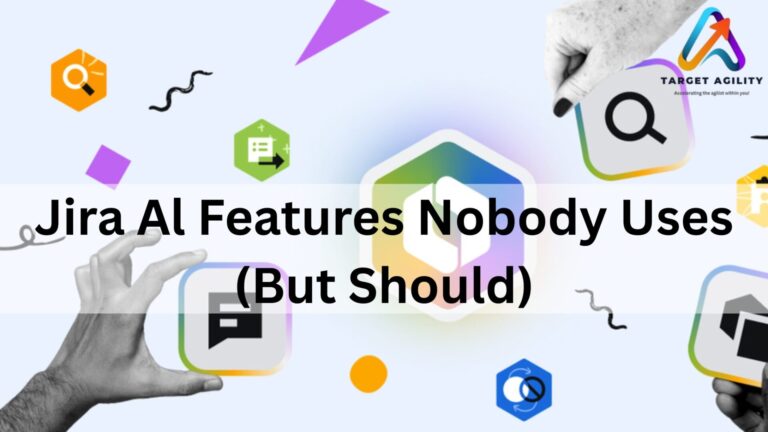Scrum has changed how teams work together to deliver projects, especially in software development. By focusing on short-term goals, flexible planning, and ongoing improvement, Scrum helps teams work more efficiently. Now, artificial intelligence (AI) is making Scrum even better by offering tools that help predict problems, assign tasks, and make smarter decisions.
Here, we’ll look at how AI-powered tools improve Scrum, including predictive analytics, smart task assignment, and more.
1. Predictive Analytics: Planning Ahead
AI tools with predictive analytics give teams useful insights into how projects are going. These tools analyze past data, team performance, and current trends to predict issues like delays or resource shortages.
For example, tools like Jira Advanced Roadmaps use AI to estimate how long tasks will take, highlight task dependencies, and create better sprint plans. This helps Scrum Masters and Product Owners fix problems early and keep the team on track.
AI also helps assess risks. It can point out potential issues like underestimated tasks or overloaded team members, making it easier to adjust plans.
2. Smart Task Assignment: Working Smarter
Assigning tasks in Scrum means balancing workloads, skills, and availability. AI tools make this easier by analyzing team members’ skills and past work to suggest the best task assignments.
For example, tools like Trello with Butler AI can recommend who should handle specific tasks based on their expertise. Similarly, GitHub Copilot can suggest the best contributors for certain coding tasks.
This saves time and ensures everyone is working on tasks that match their skills, boosting productivity.
3. Better Sprint Planning
AI makes sprint planning faster and more accurate by automating backlog prioritization and effort estimation. AI tools rank tasks based on factors like customer impact and technical dependencies. Tools like ClickUp’s AI Assistant can even create draft sprint plans that match the team’s capacity.
This reduces time spent in meetings while keeping plans reliable and effective.
4. Real-Time Tracking and Reporting
Tracking progress and creating reports can take a lot of time. AI tools make this easier by offering real-time updates and automatic reports. These tools keep everyone informed and highlight any deviations from sprint goals.
For instance, Monday.com uses AI to create live dashboards that show project progress and suggest solutions to problems. Automated reports save time for Scrum Masters, letting them focus on team collaboration.
5. Improved Communication and Teamwork
AI tools help teams communicate and collaborate better. AI chatbots integrated with tools like Slack or Microsoft Teams can answer questions, remind team members about tasks, or even run virtual stand-ups.
For example, Standuply’s AI Assistant collects updates from team members and summarizes them. This saves time and ensures everyone stays on the same page, even in different time zones.
6. Understanding Team Morale
Team morale is key to Scrum success. AI tools with sentiment analysis can monitor team communication to understand how everyone is feeling and spot signs of burnout or frustration.
Tools like TeamMood or Officevibe analyze team sentiment and provide feedback. Scrum Masters can use this information to address issues early, creating a happier and more productive team environment.
7. Smarter Retrospectives
AI improves Scrum retrospectives by identifying trends in team performance and offering actionable suggestions. Tools like Parabol analyze sprint data to highlight what went well and what needs improvement.
This helps teams learn from each sprint and continuously improve their workflow.
Conclusion: The Future of AI in Scrum
AI is changing how Scrum teams work, making processes faster, smarter, and more collaborative. From smarter task assignment to better morale tracking, AI-powered tools help teams achieve better results with less effort.
As AI evolves, its role in Scrum will only grow. Teams that embrace these tools will stay ahead, delivering high-quality work while fostering a culture of improvement and adaptability. Adopting AI tools isn’t just a step forward—it’s a leap into the future of teamwork.












